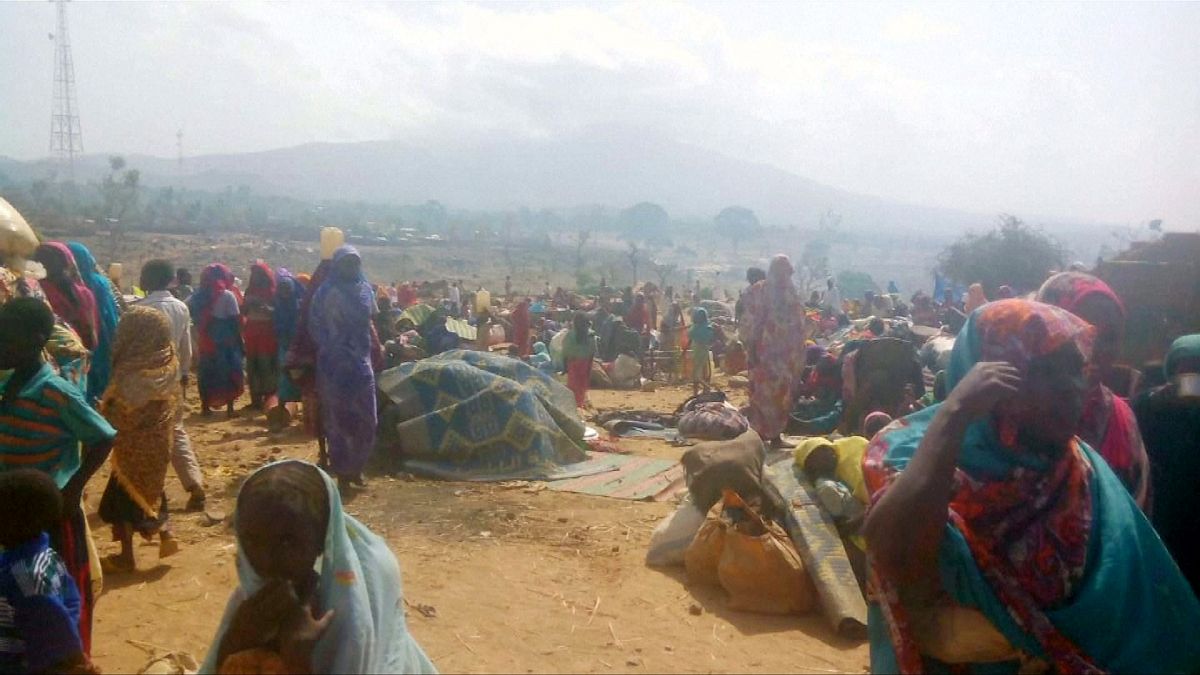The leading human rights group has accused the government of Sudan of carrying out at least 30 chemical weapons attacks in the Jebel Marra area of Darfur since January.
A leading human rights group has accused the government of Sudan of carrying out at least 30 chemical weapons attacks in the Jebel Marra area of Darfur since January.
Amnesty International estimates up to 250 people may have died after exposure to the chemical weapons agents.
The group says hundreds of villages have been attacked since mid-January this year.
The most recent attack, the group says, was on September 9.
As EU and Italy make deals with #Sudan, new evidence of Gov using chemical weapons #Darfur. https://t.co/vgL4xZcHTTpic.twitter.com/VSXmke5416
— Gauri van Gulik (@GaurivanGulik) September 29, 2016
“Credible evidence”
Tirana Hassan is Amnesty’s director of crisis research.
“During these attacks, hundreds of civilians have been shot at, tens of thousands have been displaced and, in one of the most sickening twists in the conflict in Darfur, we have discovered credible evidence that the Sudanese government has been using chemical weapons on the civilian population.”
Hassan says her team used satellite imagery, carried out more than 200 interviews and obtained expert analysis of images showing injuries.
“We gave all of the evidence that Amnesty International collected to two independent experts who viewed the evidence and said that there is credible evidence that there has been the use of some sort of chemical agent.”
“In particular, there is a high possibility of the use of a vesicant, or a blistering agent such as lewisite, or sulfur mustard gas.”
.
amnesty</a> finds 171+ villages razed, 1/4 mill displaced, 100s killed & use of chemical weapons. This is <a href="https://twitter.com/hashtag/Darfur?src=hash">#Darfur</a> 2016 <a href="https://t.co/7Q7HoA3evw">https://t.co/7Q7HoA3evw</a> <a href="https://t.co/hm43d1UaJn">pic.twitter.com/hm43d1UaJn</a></p>— Tirana Hassan (TiranaHassan) September 29, 2016
A war crime?
Under international law, the use of chemical weapons against civilians is classed as a war crime.
Sudan joined the Chemical Weapons Convention in 1999. Under the terms of the convention, members agreed to never use toxic arms.
The Chemical Weapons Convention – fact check
- – entered into force in 1997
- – 192 state signatories by April 2016
- – administered by the Hague-based Organisation for the Prohibition of Chemical Weapons
- – Find out more here
What is the security situation like in Darfur?
Fragile.
A joint African Union – UN force, known as UNAMID, has been stationed there since 2007.
Mainly non-Arab tribes have been fighting the Arab-led government in Khartoum.
The government is struggling to control rural areas.
“The world has stopped watching” – Amnesty
The UN thinks an estimated 300,000 people have been killed in Darfur since the conflict began in 2003.
4.4 million need aid and more than 2.5 million have been displaced.
The International Criminal Court issued arrest warrants for Sudanese President Omar Hassan al-Bashir in 2009 and 2010.
He is wanted on charges of war crimes and genocide in his drive to crush the Darfur revolt.
“The only difference between 2004 and what is happening in Darfur today is the world has stopped watching,” says Tirana Hassan. “The abuses which have been perpetrated by the Sudanese government on the civilian population are as bad as they were in 2004.”
“We need to have the sort of international engagement in Sudan that the level of this crisis actually requires.”
Read the full Amnesty International report here
